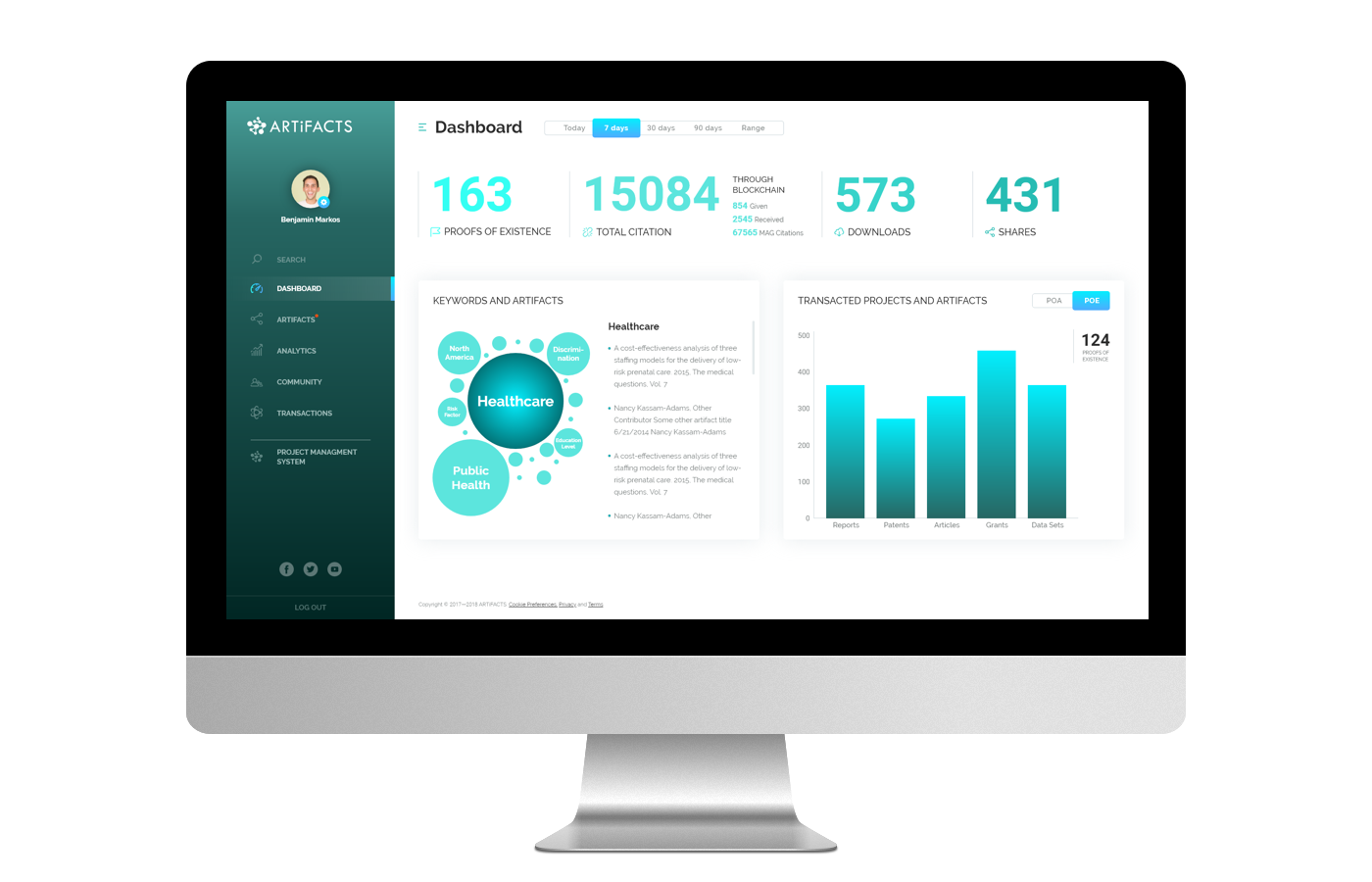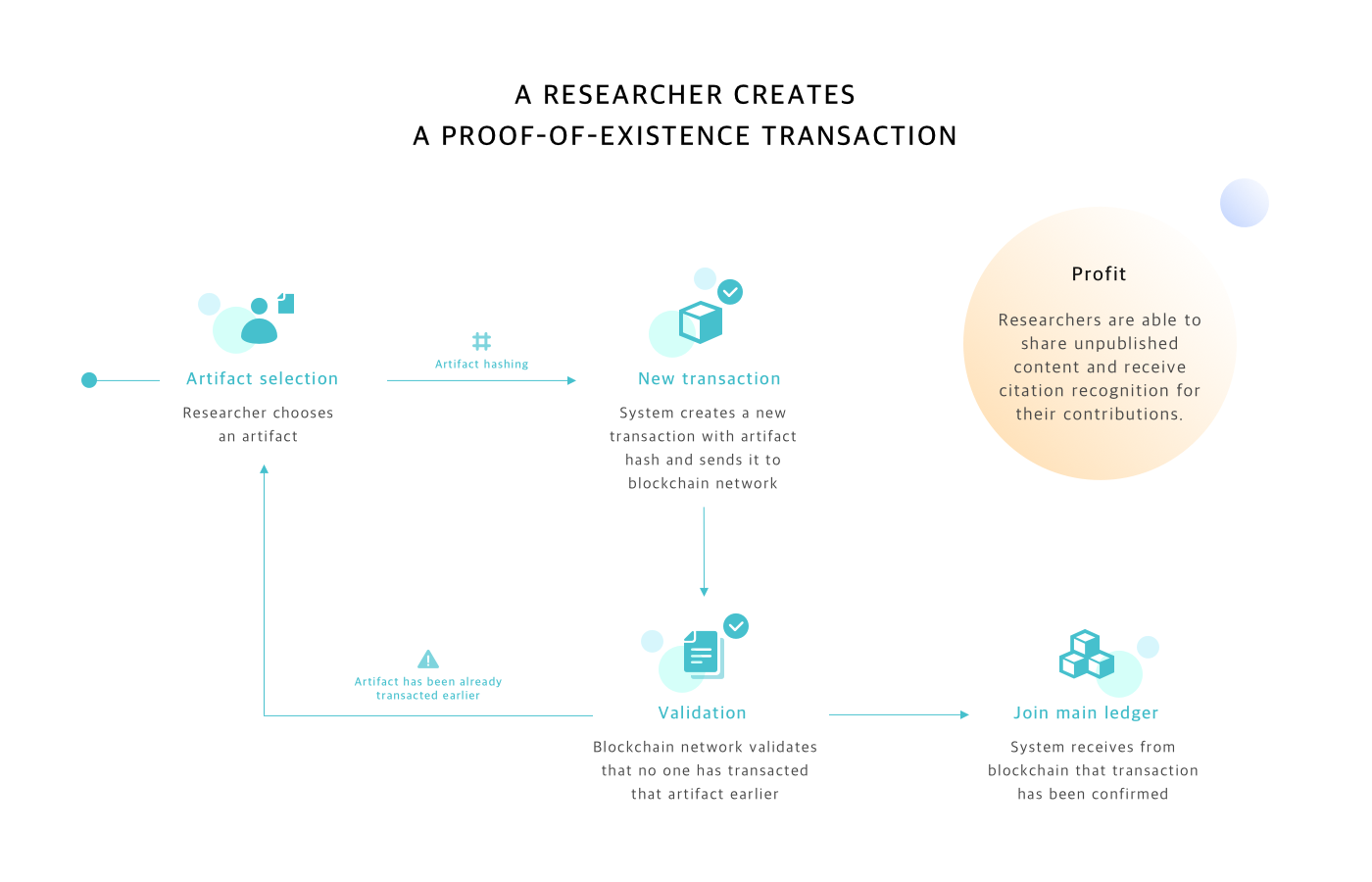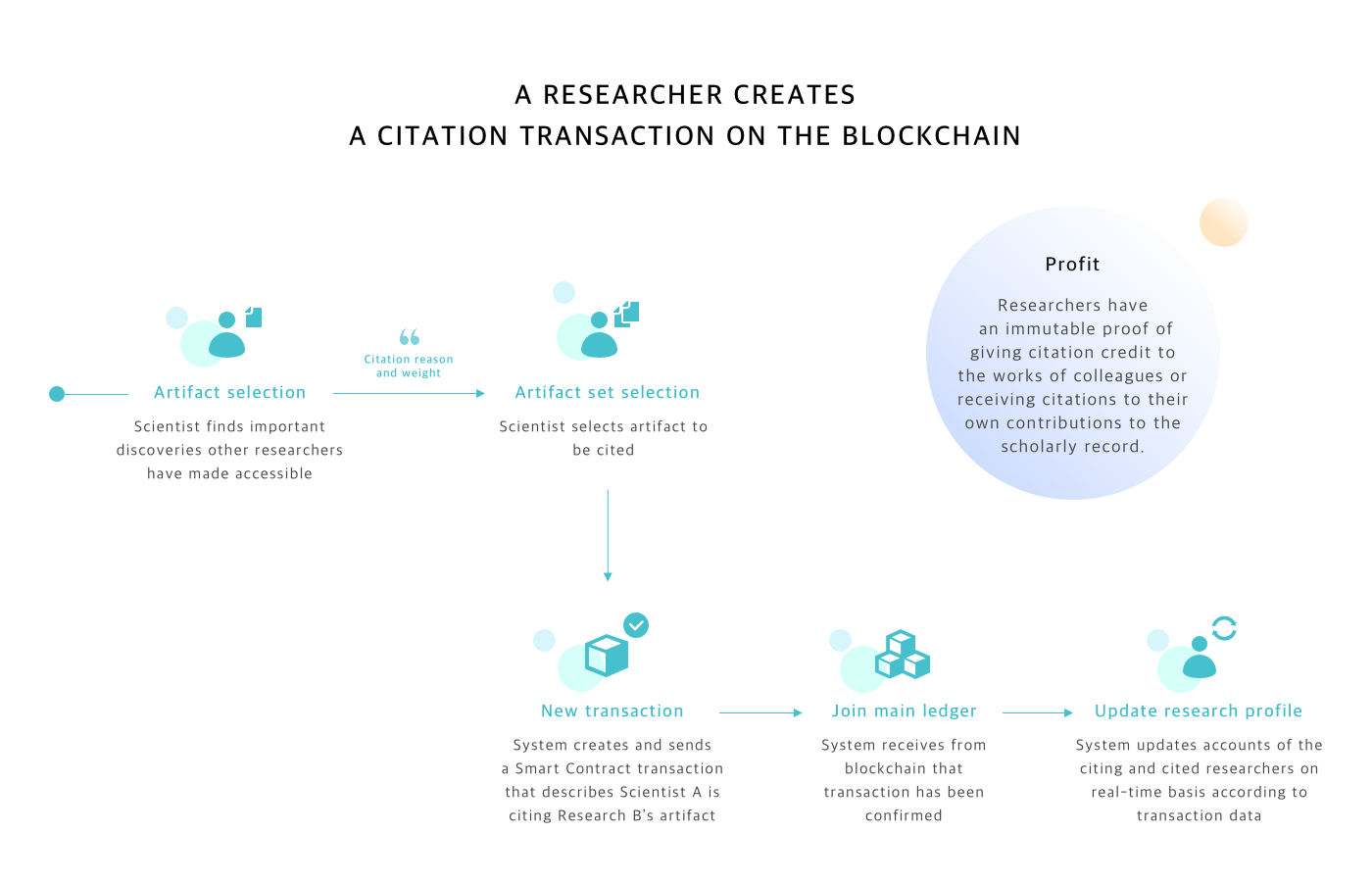Never before has so much attention been focused on research, as it is now when everyone is awaiting the vaccine for the coronavirus. At the same time, the scientific community had to deal with a seemingly unsolvable problem ─ on the one hand, researchers need a space and possibility to discuss their findings, ideas, and theories, which requires common access to the research materials; on the other, there is always the threat of appropriation of someone else’s research and claiming it as your own achievement. Whereas, knowing who the creators are is also beneficial since these people are directly connected with their work files and are able to provide explanations, supplementary information, and other insights.

Now, when it’s absolutely necessary to invent the vaccine, collaboration among scientists is a key factor of success. At the same time, there is a near-zero chance possibility for scientists to meet in person and discuss their findings. In this situation, a virtual research collaboration platform (RCP), where scientists can share their results and prove their ownership, becomes a necessary solution.
Research Collaboration Platforms: Working Principles
Establishing secure data sharing, which prevents misappropriation of results, is the main goal of these platforms. One of the most renowned blockchain-based platforms for researchers, ARTiFACTS, can guarantee the accomplishment of all these principles.

The project stands on three pillars:
- Safe sharing of the research to accelerate discovery;
In the world of academic research, especially in the current pandemic situation, a principle rules that the quicker the research is released, the earlier it becomes useful for the scientific community. The more data is published, the more useful insights other scientists can get for their work, and on the other hand 一 the possibility to repeat someone else’s mistake is mitigated significantly. When researchers are aware of what their colleagues all over the world are doing, they understand the general state of the research field, see where white spots are, and know which aspects are already studied well enough. However, on the other side of the coin is the question “How to protect your data from dishonest “borrowing?” And the research collaboration platform provides a secure answer 一 establish proof-of-existence.
2. Quickly establish proof-of-existence;
The systems, like ARTiFACTS, allow researchers to protect their data and receive recognition in the form of citations to their data, not just scientific publications. ARTiFACTS helps to protect your original ideas and share them with other researchers by securely registering a ‘digital fingerprint’ (proof-of-existence or PoE) of scientific work to their blockchain. Of course, the author always owns and controls the original files.

3. Get the credit with the break-proof attribution;
Building a reputation from the beginning of an academic career is an important point in the scientific biography of any researcher. It is a common practice for graduate and PhD students to do routine work within larger research or work on a small part of the bigger tasks. Usually, their contribution is considered as not significant enough to be mentioned as co-authors of the whole scientific work. However, they can be still recognized for their contributions based on their roles and support during research projects, so they too can be credited in citations, referring specifically to their part of the work. Each person engaged in the research can ensure provenance by transacting and time stamping his artifacts on the distributed ledger.

#blockchain #nix #medical-research #research #software-development
